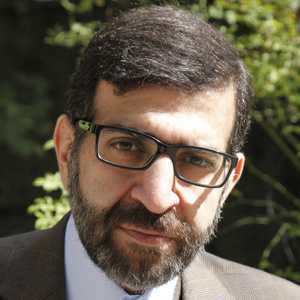Brazil, Turkey, and Iran’s Upcoming Nuclear Talks

It’s helpful here to recall an Iranian post-Revolution diplomatic principle: the country should never yield to external pressures. Thus, the government’s resistance to the P5+1 (five permanent UN Security Council members plus Germany) setting the time, location and agenda of the negotiations is undoubtedly supported by the Iranian nation. Nevertheless, it’s also important to not forget that today, our country is facing four sanctions resolutions passed by the UN Security Council—binding documents which are considered by the six global powers as the starting point for nuclear negotiations—and nothing will change if our president calls them “torn papers” “or used tissues”. On the other hand, the adoption of a stringent sanctions resolution mere days after Iran, Turkey, and Brazil had signed the monumental Tehran Declaration bespeaks the position of Brasilia and Ankara in global affairs, and provides clues as to the extent we might be able to rely on them.
Meanwhile three questions have been posed by Ahmadinejad –on the West’s stance towards Israel’s possession of nuclear weapons, the global powers’ compliance with NPT regulations, and their intentions regarding talks with Tehran- for which he has demanded answers before the negotiations can begin in August. These questions, although creating a PR challenge for global powers, cannot influence the course of negotiations.
Adding parties to the negotiations calls for second thoughts. During President Khatami’s second term in office, Iran conducted negotiations with the European trio -namely France, Britain and Germany. During his first presidential term, Ahmadinejad decided to include the United States, Russia and China; a decision which led to the formation of the notorious Five plus One. The inclusion of Russia and China was aimed at creating balance and restraining the West’s overwhelming demands. Nonetheless, the course of developments turned out to be different from what Iran had hoped for.
Now, the addition of countries to involvement in nuclear negotiations, such as Brazil and Turkey, may turn out to be a mixed blessing. The participation of our friends will be beneficial if the government pursues negotiations seriously; otherwise, it will merely provide an opportunity for Washington and its nuclear partners to buy Ankara’s and Brasilia’s support through incentives (mostly economic), just as they did with Beijing and Moscow. One should note that Resolution 1929 –the toughest UNSC sanctions passed against Iran to date- was supported by Russia and China.
Under current circumstances, when unilateral sanctions adopted by the U.S. and EU have complicated the situation, negotiations with Turkey and Brazil, although a constructive step, should be bolstered with complementary measures. One possible plan would be the inclusion of China and Russia in our trilateral negotiations with Ankara and Brazil to neutralize Washington’s efforts aimed at forging a global consensus against Iran. Clearly, no type of talks can replace negotiations with UNSC permanent members.
It is up to our nuclear diplomats -who bear the responsibility of safeguarding our national interests and nuclear energy rights- to focus on foiling anti-Iranian measures and removing our dossier from the UN Security Council. Otherwise, future resolutions will only give more space to Western extremists (and Israel) to pursue their anti-Iranian campaign.

